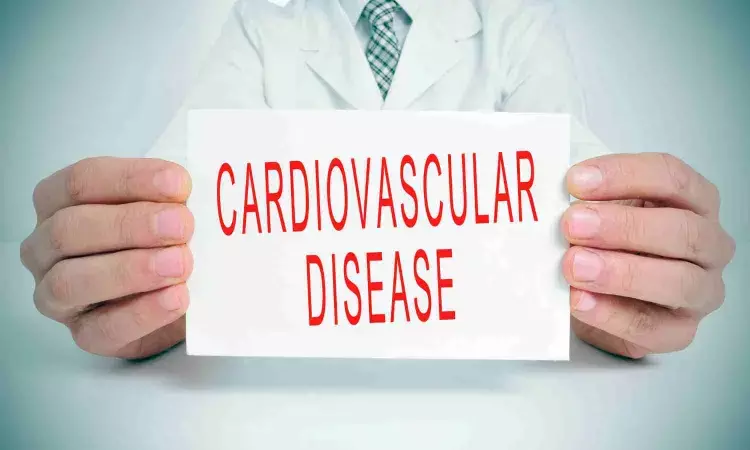- Home
- Medical news & Guidelines
- Anesthesiology
- Cardiology and CTVS
- Critical Care
- Dentistry
- Dermatology
- Diabetes and Endocrinology
- ENT
- Gastroenterology
- Medicine
- Nephrology
- Neurology
- Obstretics-Gynaecology
- Oncology
- Ophthalmology
- Orthopaedics
- Pediatrics-Neonatology
- Psychiatry
- Pulmonology
- Radiology
- Surgery
- Urology
- Laboratory Medicine
- Diet
- Nursing
- Paramedical
- Physiotherapy
- Health news
- Fact Check
- Bone Health Fact Check
- Brain Health Fact Check
- Cancer Related Fact Check
- Child Care Fact Check
- Dental and oral health fact check
- Diabetes and metabolic health fact check
- Diet and Nutrition Fact Check
- Eye and ENT Care Fact Check
- Fitness fact check
- Gut health fact check
- Heart health fact check
- Kidney health fact check
- Medical education fact check
- Men's health fact check
- Respiratory fact check
- Skin and hair care fact check
- Vaccine and Immunization fact check
- Women's health fact check
- AYUSH
- State News
- Andaman and Nicobar Islands
- Andhra Pradesh
- Arunachal Pradesh
- Assam
- Bihar
- Chandigarh
- Chattisgarh
- Dadra and Nagar Haveli
- Daman and Diu
- Delhi
- Goa
- Gujarat
- Haryana
- Himachal Pradesh
- Jammu & Kashmir
- Jharkhand
- Karnataka
- Kerala
- Ladakh
- Lakshadweep
- Madhya Pradesh
- Maharashtra
- Manipur
- Meghalaya
- Mizoram
- Nagaland
- Odisha
- Puducherry
- Punjab
- Rajasthan
- Sikkim
- Tamil Nadu
- Telangana
- Tripura
- Uttar Pradesh
- Uttrakhand
- West Bengal
- Medical Education
- Industry
HHS panel recommend statins for adults with HIV at risk for cardiovascular disease

In February 2024, the U.S. Department of Health and Human Services Panel for the Use of Antiretroviral Agents in Adults and Adolescents with HIV (ARV Guidelines Panel), in collaboration with the American College of Cardiology (ACC), the American Heart Association (AHA), and the HIV Medicine Association (HIVMA), developed statin therapy recommendations for people with HIV (PWH).
These recommendations were informed by the results of the REPRIEVE (Randomized Trial to Prevent Vascular Events in HIV) study. A summary of the recommendations relevant to physicians is published in Annals of Internal Medicine.
PWH are more at risk for many aging-related diseases, including atherosclerotic cardiovascular disease (ASCVD). The REPRIEVE study was a phase 3, global, randomized controlled trial of oral pitavastatin versus placebo for the prevention of ASCVD in PWH aged 40 to 75 years at low to intermediate risk based on 10-year risk estimates. Compared with placebo, pitavastatin was associated with a 36% reduction in MACE. These findings informed the ARV panel to recommend moderate-intensity statin therapy as the primary prevention among PWH aged 40 to 75 years with low to intermediate 10-year ASCVD risk.
The panel also strongly recommends initiating statin therapy among people with a 10-year ASCVD risk score of 5% or higher. For PWH with a 10-year ASCVD risk score below 5%, the panel favored statin therapy but also recommended that patient– clinician risk discussions consider HIV-related factors than can increase ASCVD risk. Among PWH younger than 40 years, decisions to initiate statin therapy should be individualized and based on risk factors and familial health history. The panel recommends the use of at least moderate- intensity statins including pitavastatin, 4 mg daily; atorvastatin, 20 mg daily; or rosuvastatin, 10 mg daily. The authors note that future research is needed to better understand the absolute risk for ASCVD and other nonischemic CVD manifestations in people with HIV.
Reference:
Craig Beavers, Statin Therapy as Primary Prevention for Persons With HIV: A Synopsis of Recommendations From the U.S. Department of Health and Human Services Antiretroviral Treatment Guidelines Panel, Annals of Internal Medicine, https://doi.org/10.7326/ANNALS-24-03564.
Dr Prem Aggarwal, (MD Medicine, DNB Medicine, DNB Cardiology) is a Cardiologist by profession and also the Co-founder and Chairman of Medical Dialogues. He focuses on news and perspectives about cardiology, and medicine related developments at Medical Dialogues. He can be reached out at drprem@medicaldialogues.in


